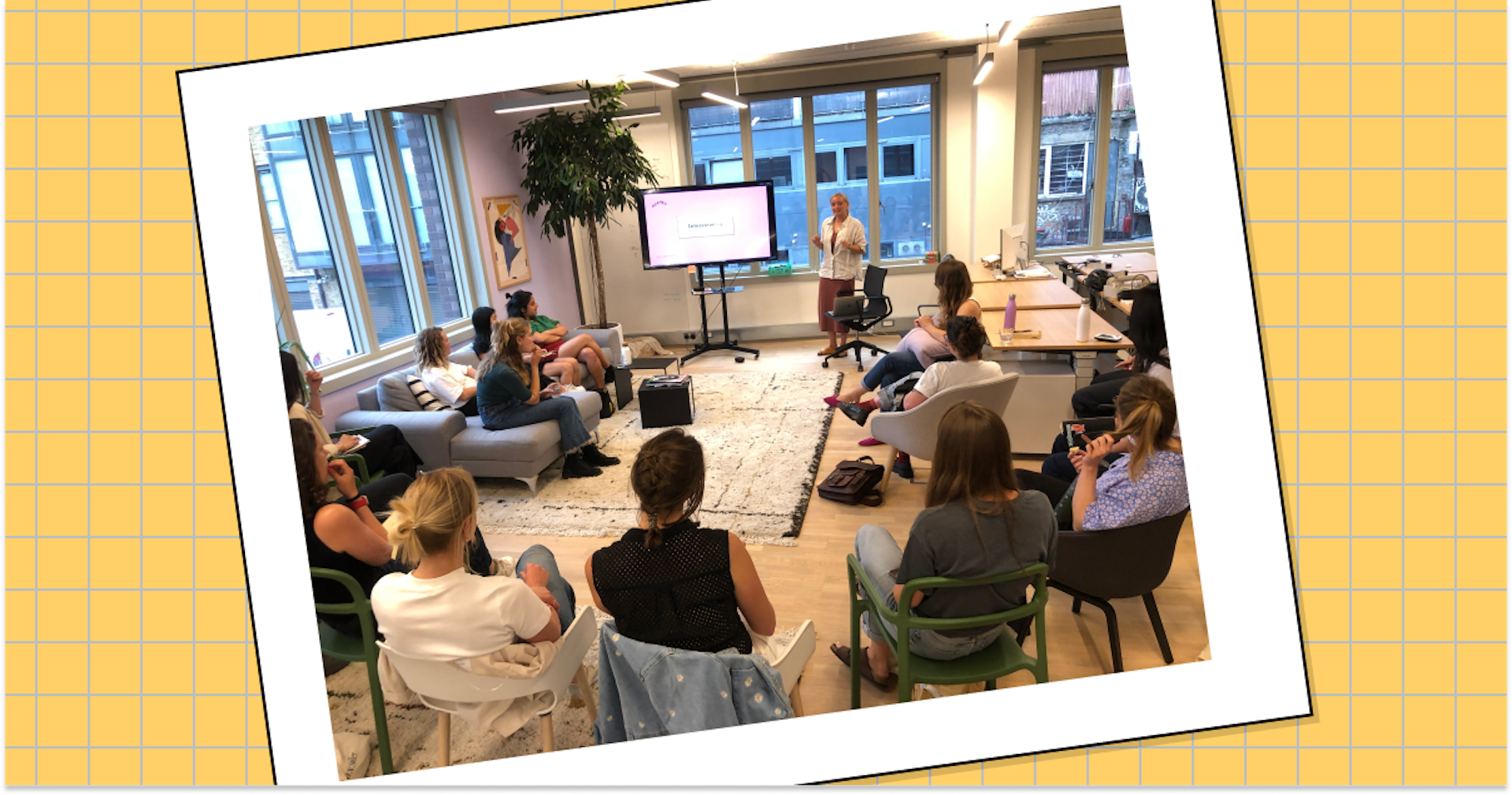It's nice to be nice: tips for finding a job you love
By Sophie Aspden - 5 September 2025
3 Min Read
Applying to jobs is hard work: telling people you’re open to work, CVs, interviewing, chatting with recruiters... it's all a bit stressful and intense.
We recently ran a hackathon for junior developers because we know that breaking into the industry is hard – especially if you've not had the same opportunities and advantages as people who are more represented in the tech world.
Having worked in a People role for over 6 years now, I've picked up a few tips about the hiring process, from finding a role to interviewing, and then negotiating an offer. Lots of this advice applies just as much to interviewers as it does to interviewees. But the one thing they all have in common? It's nice to be nice.

I first shared these tips as a talk at a Beyond Her event. Drop me a message if you'd like me to give this talk to your team or community!
🔍 Looking for a job
Be active on your own social channels and groups. Offer your advice to others and you'll get it in return.
Talk to your friends, tell them what you’re looking for – do they know someone you could chat to for advice? Make friends with a People or HR person. They’ll likely be in private groups where jobs are shared.
Being nice pays off: play the long game. Connect with someone on LinkedIn first and engage with their posts. Then if you reach out about a job in 3 months' time, they'll already know who you are.
Find a ‘mentor’ in your space: they don’t have to be senior, they can be your family and friends!
Join Slack groups, join a hackathon, go to community events (we like Triangirls, Beyond Her and Muslamic Makers). Make some friends and share what you're up to.
📝 CVs and cover letters
CVs should have 2/3/4 sentences or bullet points for each job/experience. It doesn’t need to be a lot, just the most impactful stuff.
Bring a bit of you into a CV and remove the stuff that doesn’t matter. We all tried hard for our GSCES + A levels but everyone had to do them.
Do include your interests! It makes you memorable and acts as a conversation starter for the interviewer.
A cover letter is for sharing what you’re particularly interested in about the role and/or company. Mention the values of the company that resonate with you.
Keep your cover letter short: it should be just a paragraph, not an essay, and not repeating what your CV says. If you don’t have relevant experience use the cover letter to say what transferrable skills you have.
Do a bit of research, flattery is key. We love it when people mention our blogs, our tone of voice or our culture. It shows you care and it’s something to speak about in the first round of interviews.
🎭 During the interview
Think of an interview as a date! Make the interviewer feel relaxed; often interviewers are just as nervous as you. Don’t jump straight into selling yourself; ask them how their day’s been. Making the first 5 mins easy puts everyone in a good mood.
Take notes – you don't need to remember everything off the top of your head, and it makes you look committed.
If you don’t know the answer, don’t panic. Ask them to repeat it or ask it in a different way. It’s better to show your thinking process than to waffle. If you just don’t have the relevant experience, be honest i.e. "I haven’t had to come up against that at work before but it sounds interesting, I’d love to hear how you’d solve it?"
Some good questions to ask (because interviewers probably won’t have prepped for them): What made you want to work there and is that still true now? Have there been any challenges working there? What do you think could change to make the company better?
💌 After the interview
Send an email after thanking the interviewers for their time. Pick out something specific you liked to show that you were engaged.
Don’t be afraid to ask for follow-up or feedback. All interviewers will write notes that they have to be prepared to share.
💸 Getting an offer
Expect to negotiate and get comfy with the idea! There is always flexibility in what a company can offer you. Consider other things you can negotiate: do you want a 4-day week? Shares in the company? It's good to get these things on the table and it shows you're ambitious. The worst you can get in return is a no!
You never need to tell people what your salary is. Always just ask the band or range and say what you want. No one ever needs to know your current salary EVER.
Even if you don't get the offer you want, if you loved meeting them, don’t be afraid to say you’d love to keep in touch. See if they have any events or a newsletter you can sign up for. A no isn’t always forever.
So don't forget: it's nice to be nice. And if you have any questions, I'm always happy to chat.